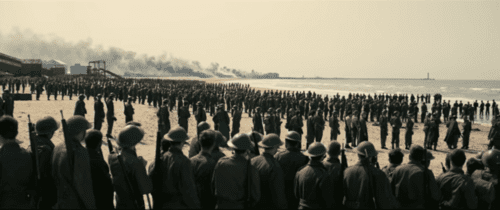Sarah Robinson was just a teenager when World War II broke out.  She endured the Blitz, watching for fires during Luftwaffe air raids armed with a bucket of sand.
She endured the Blitz, watching for fires during Luftwaffe air raids armed with a bucket of sand.
Often she would walk ten miles home from work in the blackout, with bombs falling around her.
As soon as she turned 18, she joined the Royal Navy to do her bit for the war effort. Hers was a small part in a huge, history-making enterprise, and her contribution epitomises her generation’s sense of service and sacrifice.
Nearly 400,000 Britons died. Millions more were scarred by the experience, physically and mentally.
But was it worth it? Her answer — and the answer of many of her contemporaries, now in their 80s and 90s — is a resounding No …
Immigration tops the list of complaints … Many writers are bewildered and overwhelmed by a multicultural Britain that, they say bitterly, they were never consulted about nor feel comfortable with.
'Our country has been given away to foreigners while we, the generation who fought for freedom, are having to sell our homes for care and are being refused medical services because incomers come first.'
Her words may be offensive to many — and rightly so — but Sarah Robinson defiantly states: 'We are affronted by the appearance of Muslim and Sikh costumes on our streets.'
But then political correctness is another thing they take strong issue with, along with politicians generally — 'liars, incompetents and self-aggrandising charlatans' (with the revealing exception of Enoch Powell).
The loss of British sovereignty to the European Union caused almost as much distress. 'Nearly all veterans want Britain to leave the EU,' wrote one.
Frank, a merchant navy sailor, thought of those who gave their lives 'for King and country', only for Britain to become 'an offshore island of a Europe where France and Germany hold sway. Ironic, isn’t it?'
As a group, they feel furious at not being able to speak their minds.
They see the lack of debate and the damning of dissenters as racists or Little Englanders as deeply upsetting affronts to freedom of speech.
'Our British culture is draining away at an ever increasing pace,' wrote an ex-Durham Light Infantryman, 'and we are almost forbidden to make any comment.'
